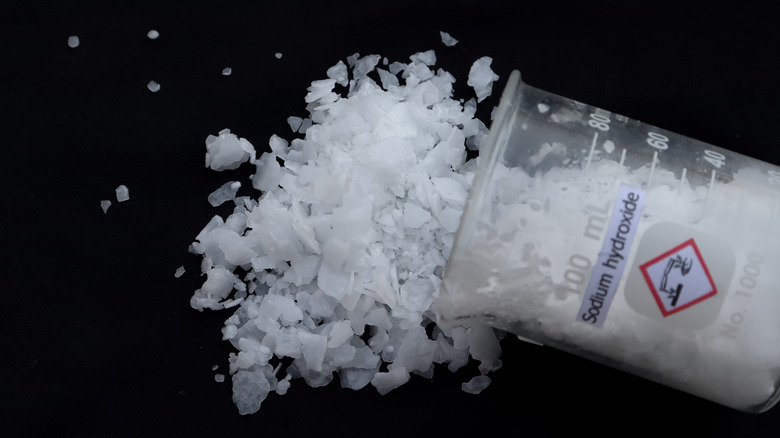An introduction to what natural soap is and how you can make it at home—both with and without handling lye. Lye is probably the most feared ingredient in making soap from scratch and this piece will take you through what it is and the part it plays in soap making.
As a soap maker, one of the most common questions that I get asked is how to make soap without lye. It’s an understandable one since a lot of people are afraid of using sodium hydroxide or potassium hydroxide (lye) and are concerned about “chemicals.” Others want to make soap at home with the kids and don’t want to worry about accidents. This piece covers how cold process soap is made with lye along with ideas for making soap, or at least crafting with soap, without handling lye.
Over the past eight years, I’ve run in-person beginner soap-making workshops, and I can assure you that if you want to make cold-process soap, you can. Many anxious people have crossed my doorstep, and each one has left not only feeling confident but with handmade soap in their hands. I want you to have that experience too, but to understand the answer to how to make soap without lye, you need to understand what soap is.
In this method, you’re replacing lye with baking soda, both of which are alkalies. However, lye is much stronger than baking soda. Heating up baking soda in the oven turns it from sodium bicarbonate into sodium carbonate, making it a slightly stronger alkali that’ll better replace the lye.

Differences Between Soap vs. Detergent
Most of the ‘soap’ that you’re probably used to using isn’t real soap at all. Most body washes, shampoos, kitchen soap, bars of soap, and liquid hand soap are actually detergents. Detergents are also surfactants, but they are not soap. Instead, they’re made using manufactured compounds such as Sodium Lauryl Sulfate (SLS) – the stuff that makes toothpaste foam and cleans your teeth. For most people, it’s not harmful, but detergents are also not natural.
Even the bars of soap that you grew up with or see for sale in shops could be a detergent. The best way to know is to look at the packaging. If you can’t find the word soap on the label, then it’s not soap. If it says ‘beauty bar’ or something like that, then it’s probably a detergent. Laws dictate what manufacturers can put on their labels, but they’ll do their best to fool you.

What Exactly Is Soap?
Soap is described in chemistry as a salt of a fatty acid and a surfactant. It’s a substance that pulls oil and grime from our skin, pans, or clothing, and helps it to rinse away in water. In essence, soap makes water wetter.
Don’t get nervous over the word chemistry, either. We rely on chemistry for life! To make soap, you do need to understand a little of what happens, and if you find a passion for soap making, learning the chemistry of customizing and formulating soap recipes will come after. To make your first batch, though, just follow my instructions, and you don’t need to worry about the science stuff.

Making Soap With Baking Soda Instead Of Lye
FAQ
What can I use in place of lye?
What is a natural alternative to sodium hydroxide?
Why can’t you make soap without lye?
What is an alternative to soap base?
Can You Add Water to lye?
Never use hot water when mixing and never ever add water to the lye. Mix by adding lye to room temperature or cool water in a sturdy glass container. Again, never add water to the lye! This mixture will get very hot and release steam at first. Stir with a stainless steel spoon until the lye is completely dissolved.
Is lime a good substitute for lemon?
It depends on the sense of the substitution. In terms of macronutrient content, there is not a substantial amount of difference between the two. However, lemons tend to offer higher levels of vitamin C when compared to limes (lime = 19.5 mg vit C/fruit, lemon = 30.7 mg vit C/fruit), making lemon the more vitamin C rich option.
How do you mix Lye?
Measure and weigh each separately first. Never use hot water when mixing and never ever add water to the lye. Mix by adding lye to room temperature or cool water in a sturdy glass container. Again, never add water to the lye! This mixture will get very hot and release steam at first.
What Lye is used to make soap?
Sodium hydroxide is the lye you use to make bar soap. No other substances can be used in place of either sodium hydroxide or potassium hydroxide to make soap. When you introduce lye to fats and oils, it breaks the molecules apart and bonds with them, creating a new compound – soap! You can watch it happen when you’re making soap from scratch.
